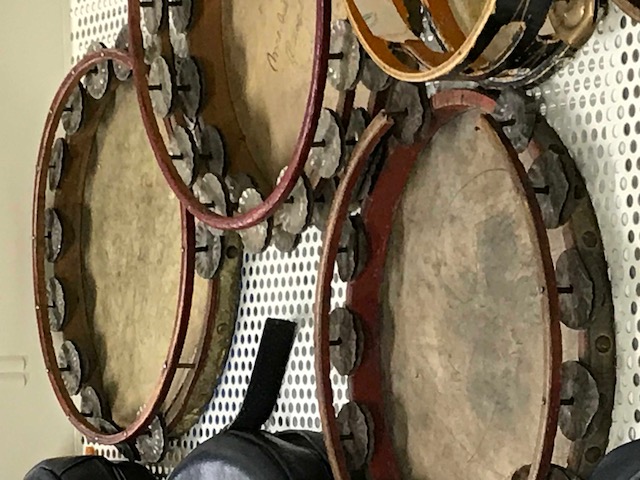How many of you remember this little ditty?
“In the church they play the organ,
In the Army beat the drum!
All the lassies play the tambourines
And the band goes Boom! Boom! Boom!
Boom! Boom! Boom! Boom! Boom!
Hallelujah! Hallelujah! Hallelujah!
Praise the Lord!”
We're a noisy lot are we not?
It used to get us in trouble. Sometimes it still does!
There’s a picture below of the original summons issued by police authorities to Captain Bella Nunn for the crime of beating a drum on King Street, London, Ontario on June 11, 1884!
The early pioneers were known for their “banners and bonnets and drums!” They were recognized for their public displays of bold preaching and street antics meant to lure folk to “the meeting!” Ahh, the meeting - with its loud praise, boisterous singing, rough testimonies, “shout aloud salvation,” prayer battles at the mercy seat and hallelujah wind ups! Perhaps they were simpler times and I suppose in many ways they were if by "simple" one means uncomplicated, sincere, and single purposed in so far as an end goal is concerned.
Take the drum for example.
A drum?
Yes, a drum!
A basic musical percussion instrument?
Yes!
A piece of the band or orchestral ensemble?
Yes!
A useful marching tool?
Yes!
A recognized parade symbol?
Yes!
A portal through which one can pass into the Holy of Holies and there commune with the living God?
Yes!
Say what?
A portal through which one can pass into the Holy of Holies and there commune with the living God?
Yes! Yes! Yes! A thousand times yes!
Often in my daily walk past our collection of bass drums, with one or two snares, my mind wanders to the days when the drum quickly became a makeshift mercy seat especially on open-airs. It transformed into an altar for the broken, a place right there on the street, in the lane, at the intersection where “heaven came down our souls to meet and glory crowned the mercy seat!” Hallelujah! To you older Sally Anns this is no surprise but to those who may be new to the Army or too young to remember - it was (maybe still is) so.
Our purpose was and is SALVATION. That thinking is simply applied to every tool, plan, instrument or function we undertake to use or do.
Would it surprise you to learn that not one of the drums in our collection is in pristine condition but rather all are scratched, dented, dusty, and dirty, punctured, marked and to the untrained eye perhaps - thought now to be rubbish? Why keep them around? No one plays them anymore. But just think of the many people who may well have received God’s great love and come to understand salvation by kneeling at these street or camp penitent forms - these drums. And who among some/all of them may have played a part in harvesting still more souls with possible connections somewhere on the parade route to you and me?
Do you suppose if I were to examine any of these relics more closely, I might discover stains created by human tears, dropping onto the membrane or the wood during one of those intimate moments of communion, between God and humanity, referred to above? Might forensic science find enough evidence to detect the DNA and thus identify the source? It just blows my mind!
I don't know if the drum in your corps has known use as a mercy seat and of course I am not suggesting that drums only are especially virtuous to lend themselves to this. The encounters we have with God do not require physical manifestations or furnishings of any sort. However, being human, we tend to assign meaning to such things. We collect souvenirs of special occasions or are emotionally moved when we see specific geographical locations associated with meaningful encounters. And yes, for Salvationists, it could very well be that big, bass drum.
Maybe I'll climb the ladder again today and spend a moment or two listening to the stories the drums continue to tell…
“In the Army beat the drum!”







Leave a Comment